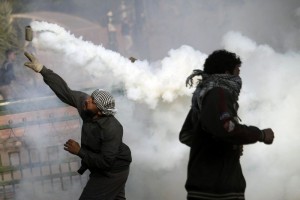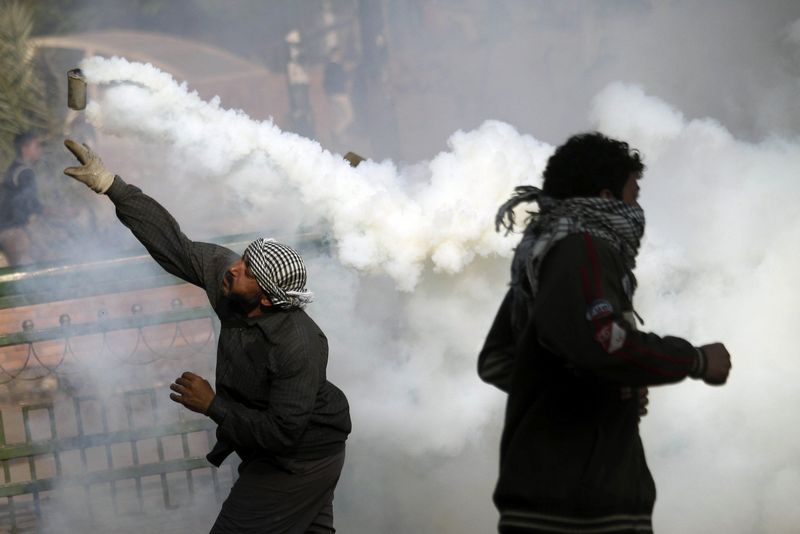
(AFP FILE PHOTO / MAHMOUD KHALED)
The current draft Protest Law, which is expected to be legislated following review from the presidency, contains the same main problems that manifested in an earlier version of the draft, according to 19 Egyptian human rights organisations.
The signatories of a joint statement published on Friday “deplored” the draft law, stressing that a number of political parties, members of the interim government, and the spokesman for the Secretary-General of the United Nations had urged the interim government to adhere to international standards when it came to any legislation dealing with the right to peaceful assembly.
The statement criticised the interim government and the draft bill for maintaining the essence of the originally widely-condemned bill.
“The final version of the bill, which the government is now trying quickly pass, is not worthy of law and would have a long term impact on the rights and freedoms of individuals to express their views,” said the group in the joint statement.
The amended draft bill reduced the required period of notifying the Ministry of the Interior of a protest from at seven days to three days, as stated by Article 8 of the potential law. However as the civil society organisations pointed out, the ministry still had the right to reject such notifications based on “loose reasons.” Such loose reasons included the content of Article 10, said the groups, which allows the ministry to request from a judge the authorisation to cancel, postpone, or change the location of a protest if the ministry sees that such an assembly “threatens security or peace.”
The group also decried heavy-handed penalties detailed in the law, which include an EGP 300,000 fine if a protest is held without proper notification, a fine “that contradicts the simplest principles and international standards, especially since the law therefore prevents spontaneous gatherings in response to emergencies.”
The joint statement also pointed to the law’s permission to security forces to use excessive force, citing Article 13, which allows police to use rubber bullets “without restrictions”, even though such force could lead to death, as happened last week amid student demonstrations at Al-Azhar University. The organisations also pointed out that an article that had forbidden security forces from using any procedures not stated in a previous article had been deleted from the amended version, going on to say such a deletion “was just another attempt to legitimise repression”.
The signatories said that the draft law “gives repression legal cover in conjunction with the end of state of emergency,” which ended earlier this month. They added that Egyptian security forces “have an arsenal of legislation in penal codes and criminal procedures” that allow them to respond with excessive force against civilians.
Following heavy criticism from civil society and political parties, the interim government tabled the original draft of the Protest Law, saying it would conduct a “societal dialogue“ to discuss amendments to the law.
An amended bill was submitted to the presidency earlier this month and will be reviewed before being officially ratified.
Signatories to Friday’s statement included the Egyptian Initiative for Personal Rights, the Cairo Institute for Human Rights Studies, the Arab Network for Human Rights Information, and the Egyptian Centre for Economic and Social Rights.

